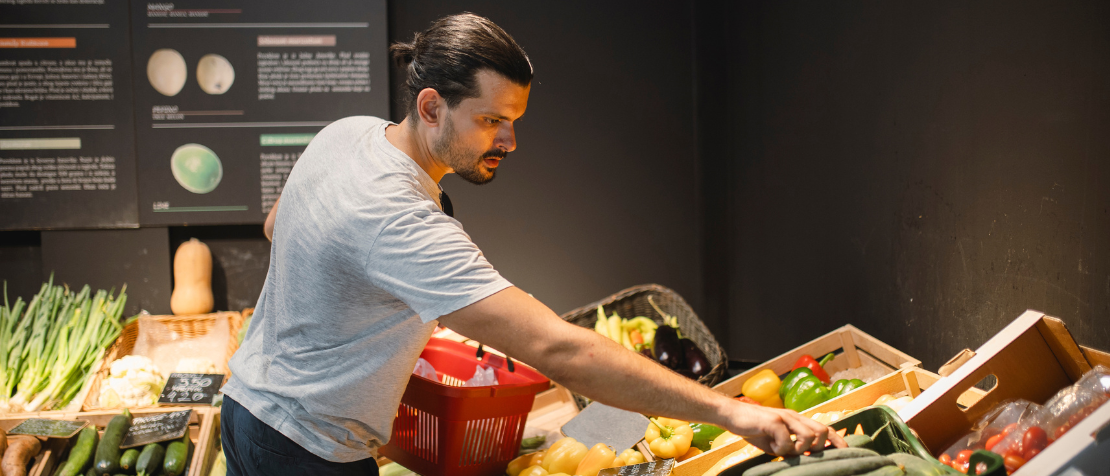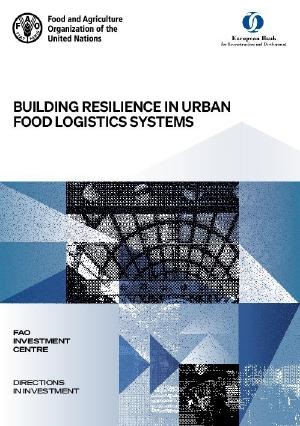Feeding our cities: How the COVID-19 pandemic reshaped the movement of food in urban areas

©FAO/Sanja Knežević
The COVID-19 pandemic changed the way food is moved, sold, and bought in urban areas worldwide – creating some new trends and accelerating others.
In Europe and Central Asia, the pandemic and geopolitical tensions disrupted supply chains, affecting food availability and prices in cities. Consumer demand split, with some seeking cheaper options from discount stores and others preferring premium, sustainable, and convenient products. In Europe, climate awareness drove the push for greener logistics, while continued urban expansion in Eastern Europe, South Caucasus, Türkiye, and Central Asia underscored the need for modernized infrastructure that can ensure resilient food logistics and prevent food security and nutrition challenges for urban communities. However, policies often fall short of meeting the demands of urban food logistics.
Understanding how this new reality has reshaped the urban food distribution landscape is the subject of a joint report by the European Bank for Reconstruction and Development (EBRD) and FAO’s Investment Centre, titled Building resilience in urban food logistics systems.
This report highlights strategies used by urban authorities and the private sector in Europe and Central Asia to strengthen rural-urban linkages and improve the resilience of food logistics infrastructure – from participatory food policy planning and greenbelt protection to the growth of e-commerce. For instance, Istanbul introduced public procurement initiatives supporting local farmers, while Rome undertook a 62ha expansion of its wholesale food market to integrate e-commerce and logistics innovations.
The report combines insights from case studies in nine cities, including Belgrade, Istanbul, Kyiv, London, Paris, Rome, Tashkent, and Tbilisi, as well as good practices from around the world.
Iride Ceccacci, Head of Corporate Sector Advisory from the EBRD, explained that this work is part of the partners’ joint COVID-19 technical assistance package launched in 2020 to help agrifood value chains in the EBRD’s countries of operation cope with pandemic-related disruptions.
“The pandemic and geopolitical tensions in recent years have revealed how vulnerable our global supply chains are to shocks and how that affects the availability and prices of food in cities,” she said. “These events are stark reminders of the need for policymakers, public and private investors, industry leaders and others to work together to make sure urban food logistics are not only more efficient but also more resilient and flexible.”
The bigger picture
FAO Agribusiness and Value Chain Specialist Florent Tomatis, one of the co-authors of the report, noted, “The report combines data analysis and insights from value chain stakeholders to illustrate how urban food systems are adapting. In Europe and Central Asia, cities like Paris and Istanbul exemplify the resilience and innovation needed to strengthen food logistics infrastructure, particularly through participatory policy frameworks and increased linkages with the greenbelt.”
Economist Berkin Sener, another co-author, added, “In Europe and Central Asia, the pandemic spurred transformations in urban logistics systems. Cities like Rome expanded their wholesale markets to meet e-commerce demands, while Kharkiv demonstrated adaptability by reconfiguring food supply chains during multiple crises. These regional examples underline the critical need for tailored solutions that enhance food security and logistical resilience.”
The trends and challenges highlighted in this report have broad implications for urban food distribution, urban environments, and the relationships among food logistics actors. They underscore the need for resilient and participatory food policy frameworks to ensure cities can weather future disruptions, meet diverse community demands, and ensure everyone has access to nutritious food at all times.

